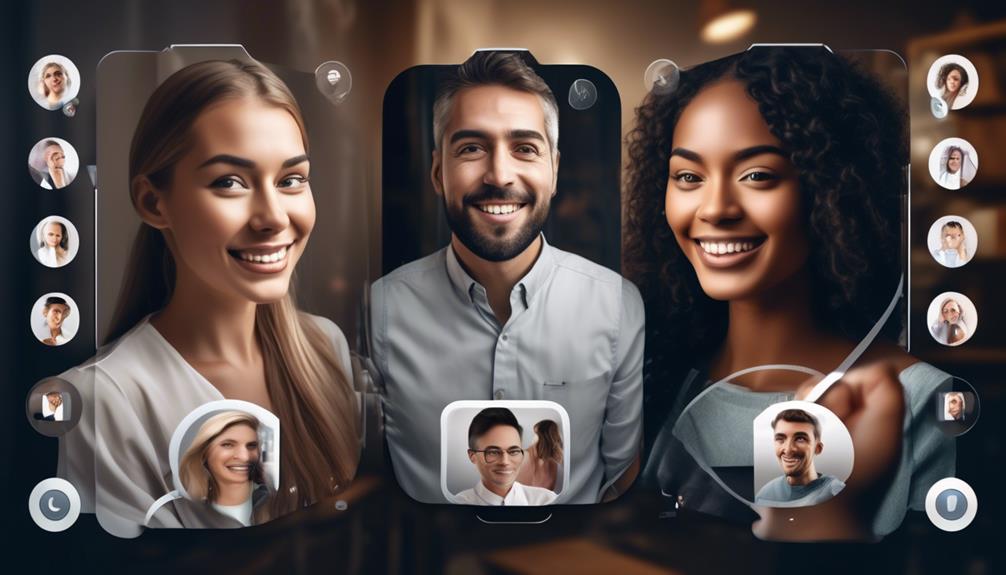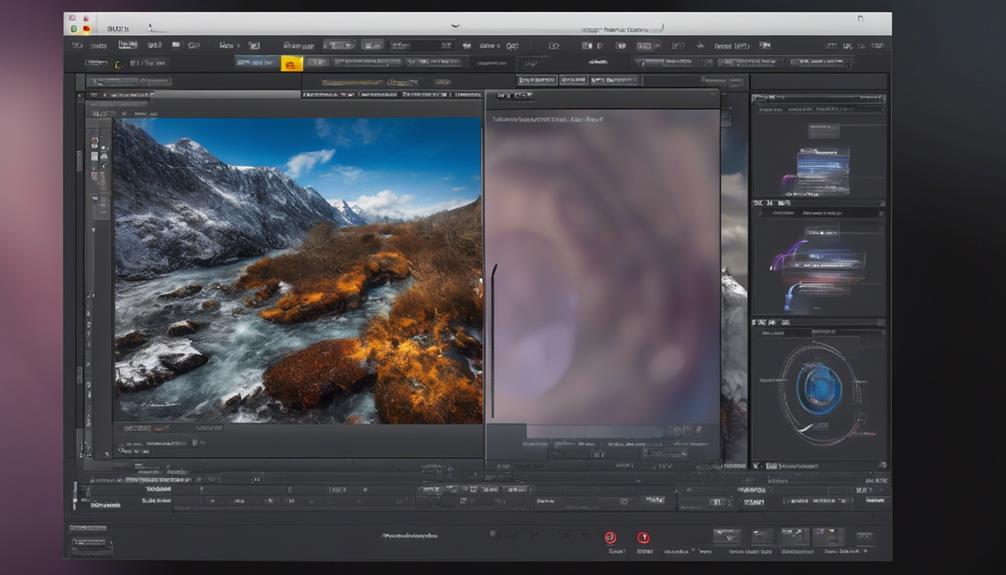We have all heard the well-known saying, “If you’re not paying for it, you’re the product.” When it comes to the privacy of our Facetime audio calls, many of us question how secure they actually are. With growing worries about digital privacy and surveillance, it is only natural to wonder if our conversations are genuinely private.
But are Facetime audio calls as secure as we'd like to believe? Let's explore the potential risks and safeguards in place to protect the privacy of our Facetime discussions.
Key Takeaways
- FaceTime audio calls are end-to-end encrypted, making it difficult for unauthorized parties to intercept the content of the calls.
- There are risks and concerns regarding unauthorized access and interception of encrypted conversations, as well as the possibility of spyware compromising FaceTime security.
- Apple retains limited call metadata, which poses a risk to user privacy, and law enforcement may be able to access call invitation logs with a valid warrant.
- To protect FaceTime call privacy, it is important to use a reliable network, keep devices updated with the latest software and security patches, limit calls to trusted contacts, and practice good digital hygiene.
FaceTime Audio Call Monitoring Risks
Monitoring FaceTime audio calls presents inherent risks due to the potential for unauthorized access and interception of encrypted conversations. FaceTime boasts end-to-end encryption, securing communication from one device to another. However, recent spyware apps like FlexiSpy can compromise FaceTime security by tapping into calls, though physical access to the device is required for installation.
Apple cannot access the content of FaceTime calls, but the company retains limited call metadata for a short period, potentially posing a risk to user privacy.
The legal landscape adds another layer of complexity. Law enforcement theoretically can tap FaceTime calls with a court-issued warrant, but this is rare due to the robust end-to-end encryption. However, the possibility of police tapping FaceTime calls highlights vulnerabilities despite encryption.
Therefore, while FaceTime is designed to be secure and maintain privacy, the risks associated with unauthorized access and interception demonstrate the need for continued vigilance and technological advancement in secure communication.
Can FaceTime Calls Be Intercepted?

FaceTime calls are end-to-end encrypted, ensuring the privacy and security of the conversations. This means that the content of FaceTime calls is protected from interception by any unauthorized parties. To illustrate the security of FaceTime calls, consider the following table:
| Aspect | Description |
|---|---|
| Encryption | FaceTime calls are secured with end-to-end encryption, meaning only the sender and receiver can access the content. |
| Intercepting | It is extremely difficult for third parties to intercept FaceTime calls due to the robust encryption and security measures in place. |
| Vulnerabilities | While spyware apps like FlexiSpy can potentially tap into FaceTime calls, anti-spyware software such as Certo AntiSpy can effectively detect and remove such threats. |
| Comparison | FaceTime is considered more secure than other popular communication platforms like WhatsApp and Signal, as it prioritizes user privacy and employs strong encryption. |
The end-to-end encryption of FaceTime calls provides a high level of security, making it challenging for unauthorized parties to intercept the content of the calls. However, it is important for users to remain vigilant against potential vulnerabilities and utilize anti-spyware tools to further safeguard their communication privacy.
Ensuring FaceTime Call Privacy
To ensure the privacy of FaceTime calls, users can take various proactive measures to enhance the security of their communications.
While FaceTime calls are end-to-end encrypted, providing a high level of privacy and security, users can further safeguard their calls by practicing good digital hygiene.
It's crucial to use a reliable network to prevent potential eavesdropping or interception of calls.
Keeping devices updated with the latest software and security patches is also essential in ensuring the integrity of FaceTime calls.
Additionally, limiting calls to trusted contacts helps mitigate the risk of unauthorized access to conversations.
Users should be mindful of their surroundings during calls to prevent inadvertent disclosure of sensitive information.
FaceTime Audio Encryption Explained

Enhancing the security of FaceTime calls extends to understanding the intricacies of FaceTime audio encryption, providing insight into the robust measures in place to safeguard the privacy and integrity of conversations.
FaceTime audio calls are secured through end-to-end encryption, which means that only the sender and the receiver can access the call content. This encryption is achieved using AES 256-bit keys, Transport Layer Security (TLS), and Internet Connectivity Establishment (ICE) for secure connections, ensuring that the communication remains private and protected from unauthorized access.
Additionally, Apple retains limited information about FaceTime usage for a short period, but this doesn't include access to call content, further enhancing the security and privacy of the calls.
Law enforcement's ability to access information about call invitation logs is restricted and requires a valid warrant, affirming the strength of the encryption measures in place.
- End-to-end encryption guarantees the utmost privacy and security for FaceTime audio calls.
- AES 256-bit keys and TLS provide advanced encryption, ensuring the integrity of the communication.
- Limited data retention by Apple underscores the commitment to privacy and security.
- Strict control over law enforcement access reinforces the robustness of FaceTime audio encryption.
Measures to Protect FaceTime Privacy
When safeguarding the privacy of FaceTime calls, it's essential to implement measures that ensure secure and private conversations.
Firstly, utilizing end-to-end encryption for FaceTime audio calls is crucial. This encryption method ensures that only the sender and the recipient can access the contents of the communication, preventing unauthorized monitoring.
Additionally, carefully managing settings for name, photo, and contact information helps limit the sharing of personal data during FaceTime calls, adding an extra layer of privacy protection.
Regularly updating iOS devices is also vital, as these updates often include security patches and enhancements for FaceTime, strengthening its privacy features.
Furthermore, it's important to avoid using public Wi-Fi networks for FaceTime calls, as these connections can be vulnerable to interception by cybercriminals.
Lastly, only answering FaceTime calls from known and trusted contacts reduces the likelihood of unauthorized monitoring or recording.
Frequently Asked Questions
Can Facetime Calls Be Traced by Police?
Facetime calls are end-to-end encrypted, ensuring privacy and security. FaceTime's encryption technology, including AES 256-bit keys and TLS, establishes a secure platform. However, police surveillance can access FaceTime calls with a court-issued warrant, raising privacy concerns. This highlights the balance between user privacy and law enforcement access, making it a topic of ongoing debate.
Do Facetime Calls Get Recorded?
Absolutely not. Facetime calls aren't recorded.
The privacy and security of Facetime calls are ensured through robust data encryption and call security measures. End-to-end encryption protects the content of calls from unauthorized access, and Apple's limited retention of call information for up to 30 days further enhances user privacy.
Facetime sets the gold standard for secure and private audio communication, making it a top choice for those who prioritize data security.
Can Someone See You on Facetime Audio?
Privacy concerns about Facetime audio calls center around potential breaches of confidentiality and unauthorized access. Security measures, such as end-to-end encryption and limited data retention, bolster user protection.
Users maintain control over their contacts and can boost security by updating devices and avoiding unsecured networks. These factors contribute to Facetime's reputation as a secure communication platform, assuring users of their privacy.
Can Facetime Audio Calls Be Intercepted?
Facetime audio calls are highly secure due to robust encryption protection. Privacy concerns are mitigated by end-to-end encryption, making interception virtually impossible. Apple's AES 256-bit keys and Transport Layer Security ensure call content remains confidential.
Facetime security measures make call interception extremely challenging. The encryption technology employed by Facetime provides strong safeguards against any unauthorized access, ensuring the utmost privacy for users.
Conclusion
In conclusion, FaceTime audio calls are incredibly secure and virtually impenetrable to unauthorized monitoring. The end-to-end encryption ensures the utmost privacy and protection for our conversations, making it one of the most secure platforms for audio calls.
Rest assured, FaceTime takes our privacy seriously and goes to extreme lengths to safeguard our personal information. It's like having a fortress around our conversations, ensuring they remain completely private and secure.










